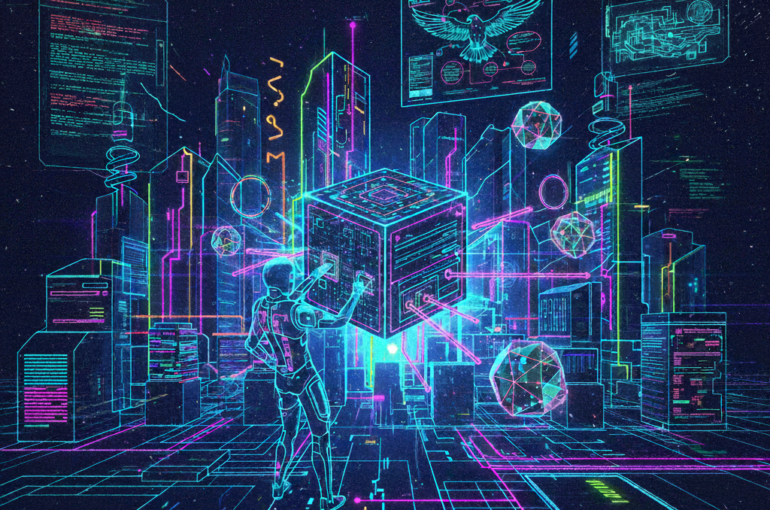How Caribbean Countries Can Harness the Power of Artificial Intelligence
Artificial intelligence (AI) often gets associated with cutting-edge technologies in wealthy nations. But the truth is, AI has the potential to be an incredible force for good in developing countries, tackling some of the most pressing challenges in areas like healthcare, education, and economic growth. Let’s dive into the specific ways AI can help – and how to make sure it benefits everyone.

Healthcare: The Doctor Will See You (Virtually)
AI-powered diagnostic tools can bring specialist-level care to underserved areas, helping diagnose diseases earlier and more accurately.
Remote patient monitoring through AI systems can alert doctors to potential health emergencies, improving outcomes in regions with limited medical infrastructure.
Chatbots can offer basic health advice and triage, freeing up medical staff for critical cases.
Agriculture: Smarter Farming = More Food
AI can optimize crop yields by analyzing data on weather patterns, soil conditions, and disease threats.
Predictive analytics can help farmers make better decisions about when to plant, irrigate, and harvest for maximum output.
AI-powered systems can even monitor livestock health and detect problems early.
Education: Leveling the Learning Field
Personalized learning platforms powered by AI can adapt to individual student needs, helping them learn at their own pace.
AI translation tools can break down language barriers, allowing access to high-quality educational materials regardless of location.
AI-powered tutors can give extra support, especially in areas with teacher shortages.
Economic Development: Unlocking New Potential
AI can automate routine tasks, freeing up workers for higher-value activities and boosting productivity.
Predictive analytics can help small businesses make better decisions about inventory, pricing, and marketing.
AI-driven fraud detection can protect financial systems and encourage investment.
Challenges and How to Overcome Them
The Data Gap: AI needs good data to thrive. Developing countries need investment in data collection and infrastructure.
Bias and Fairness: It’s essential to be aware of potential biases in AI algorithms. Proactive measures must be in place to make sure AI benefits everyone, not just a select few.
Skills and Education: Building an AI-ready workforce is crucial. Governments and NGOs can play a role in upskilling and training.
The Bottom Line: AI for Inclusive Progress
AI isn’t a magic wand, but it’s a powerful tool. Developing countries shouldn’t simply copy the AI models of wealthier nations. It’s about finding solutions tailored to local needs and challenges. By investing in AI alongside responsible policies, developing countries can leapfrog ahead, improving lives, and building a more equitable future.
ASK THE CEO
ASK THE CEO is our way of explaining what A.I. means for Jamaica. Have questions? ASK.
SELECT THIS TO ASK
Here are some questions our audience have ask before
What are the common uses and applications of AI?
AI is used for contract analysis, object detection and classification, image recognition, content distribution, predictive maintenance, data processing, automation of manual tasks, and data-driven reporting1
What are intelligent agents, and how are they used in AI?
Intelligent agents are autonomous entities that use sensors to perceive their environment and actuators to perform tasks or achieve goals. They can be simple or complex and can be programmed to learn and improve.
Other articles
-

Is Artificial Intelligence the same as Machine Learning?
In the rapidly evolving world of technology, terms like Artificial Intelligence (AI) and Machine Learning (ML) are often used interchangeably. However, while they are closely related, they are not the same thing. In this blog post, we’ll dive into the intricacies of AI and ML, unravel their differences, and explore how they are shaping our […]
Enroll -

The AI-Powered Holiday: Smart Technology for Deeper Human Connection
The scent of cinnamon and pine fills Sarah’s kitchen as she reviews her holiday timeline on her tablet. What might appear to be simple meal planning actually represents a sophisticated collaboration between human intention and artificial intelligence. Her AI assistant has analyzed three years of family preferences, dietary restrictions, and cooking success rates to suggest […]
Enroll -

AI Agents Are Rewriting the Rules of Cyberespionage
The digital battlefield has evolved beyond recognition. While cybersecurity experts once tracked individual hackers and their signature malware, today’s threat landscape resembles something closer to a biological ecosystem. Autonomous AI agents now operate independently, learning from failures, adapting to defences, and coordinating attacks with a sophistication that would make military strategists pause. Recent intelligence reports […]
Enroll -

Caribbeans Can Win the World Cup with AI – The Island Blueprint for Global Football Glory
When people speak about the World Cup they often picture Europe or South America. Yet the Caribbean has entered a rare moment in football history. Curaçao has already qualified for 2026. Haiti is in. Jamaica and Suriname are still pushing through the playoffs. This is the first time in living memory that the region has […]
Enroll

